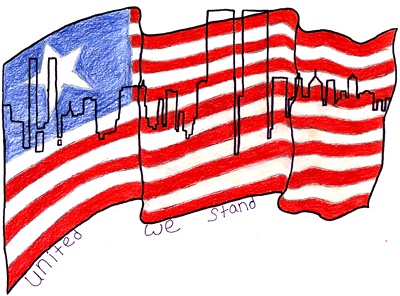All Nonfiction
- Bullying
- Books
- Academic
- Author Interviews
- Celebrity interviews
- College Articles
- College Essays
- Educator of the Year
- Heroes
- Interviews
- Memoir
- Personal Experience
- Sports
- Travel & Culture
All Opinions
- Bullying
- Current Events / Politics
- Discrimination
- Drugs / Alcohol / Smoking
- Entertainment / Celebrities
- Environment
- Love / Relationships
- Movies / Music / TV
- Pop Culture / Trends
- School / College
- Social Issues / Civics
- Spirituality / Religion
- Sports / Hobbies
All Hot Topics
- Bullying
- Community Service
- Environment
- Health
- Letters to the Editor
- Pride & Prejudice
- What Matters
- Back
Summer Guide
- Program Links
- Program Reviews
- Back
College Guide
- College Links
- College Reviews
- College Essays
- College Articles
- Back
A Failing College MAG
Created officially on September 6, 1787, during the Philadelphia Convention, the electoral college consists of popularly elected representatives (electors) from all states who come together every four years to formally elect the president and vice president of the United States. Each state was assigned a number of electors based on the combined total of senators and representatives. Electors' responsibility is to dutifully represent the choice of their citizens, based on the popular vote. The system is all-or-nothing, so all of a state's votes go to the candidate who wins a majority of electoral votes in that state. The electoral college was created based on the Constitution's framers' assumption that citizens are unfit to solely elect the country's president. But because voters are represented only by the electors, the electoral college is a perfect example of an indirect election, which makes it a topic of controversy.
The electoral college serves to give states a more equal say. Two hundred years ago, small states feared that large states with large populations would have unfair power in the federal government. Using a system of electoral votes and electors, in simple terms, takes this power from larger states. For example, consider California. With 55 votes, it seems to be the most influential state in the electoral college; therefore, it is important to presidential candidates. Compared to California, sparsely populated states such as North Dakota shouldn't stand a chance of attracting attention in an election year. But though California has 55 times the population of North Dakota, it only has 18 times the number of electors, which reduces its clout. Through this system, one North Dakota citizen is worth three Californians. Because of this, the electoral college favors small states and creates an unfair voter-to-electoral-vote ratio.
The first three words of the Declaration of Independence are “We the People.” By electing a president indirectly through elector votes and not by the majority of popular votes – which could be 51 percent or 90 percent, but would still result in all the electoral votes for the state – the votes of a vast swath of citizens (especially in heavily populated areas) are basically discarded. It is shocking that the government possesses the audacity to state “every vote counts” when countless citizens' votes equate to nothing.
This issue was never more apparent than in the 2000 presidential election, the closest and most contested since the establishment of the electoral college. The citizens' choice – Democratic nominee Al Gore – was not elected, as he did not receive the majority of electoral votes. Instead, Republican nominee George W. Bush won by four electoral votes, despite receiving 337,576 fewer popular votes than Gore. The controversy of these results lies not in Bush's slim margin of victory, but instead in the statement that election made about the power of the electoral college to oppose the will of the people. The results were challenged and the Supreme Court was called upon to settle the issue definitively. The court's eventual ruling, in favor of Bush, further ignored the say of the country as well as the democratic institution it was founded upon.
The electoral college was created during a time when it was too complicated to travel throughout every state to count each citizen's vote. Now we have the technology to securely cast and count every vote. The electoral college grants unfair power to small states and invalidates millions of citizens' votes. This may have been the best method when it was created, but today it is outdated. I believe we should abolish the electoral college in favor of more direct ways to represent the will of the American people.

Similar Articles
JOIN THE DISCUSSION
This article has 5 comments.
